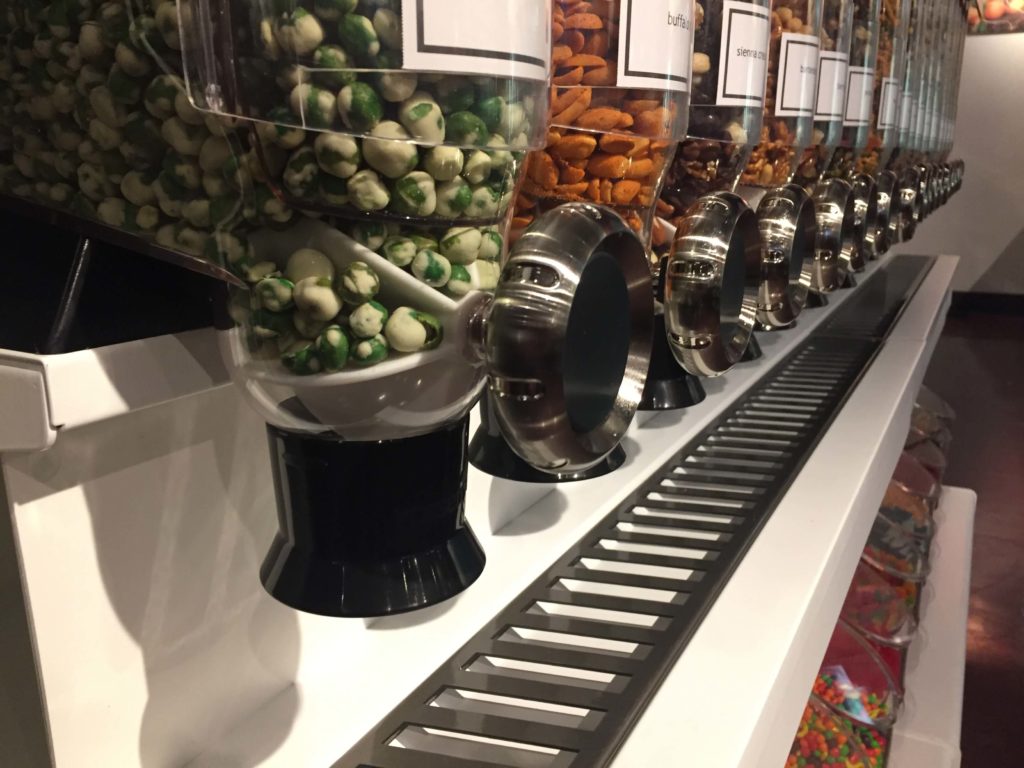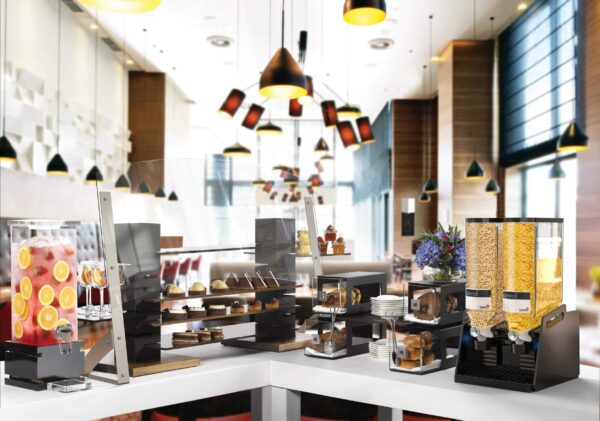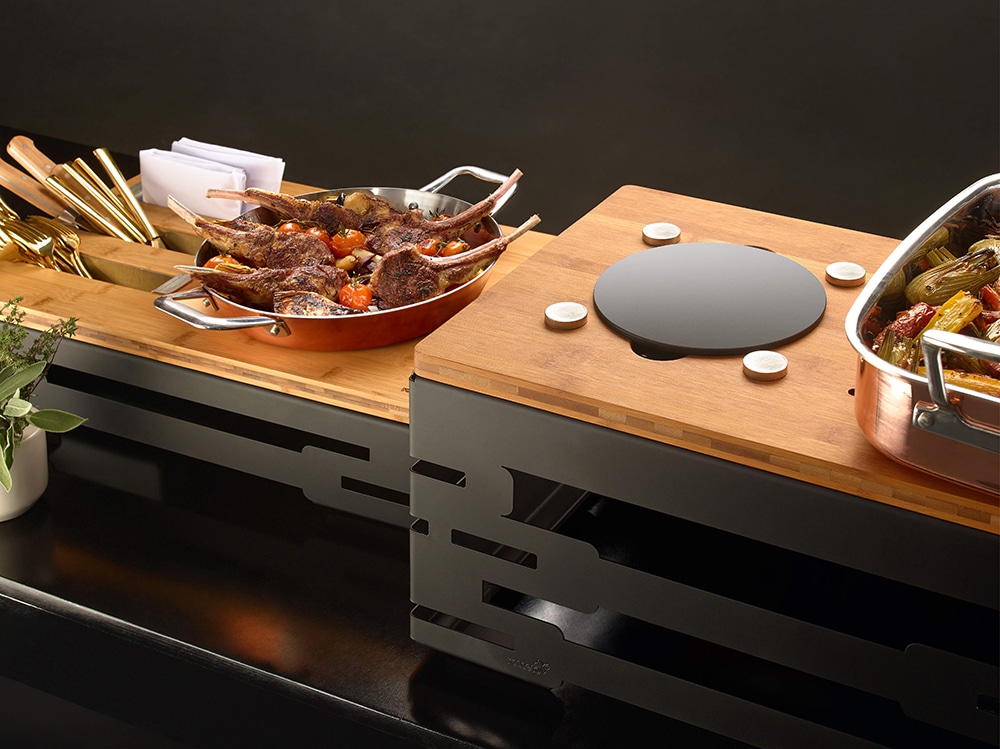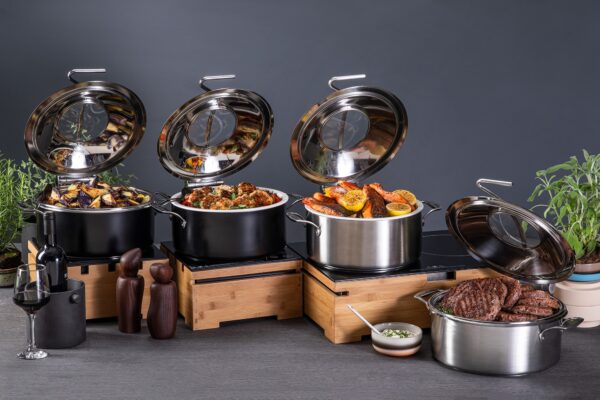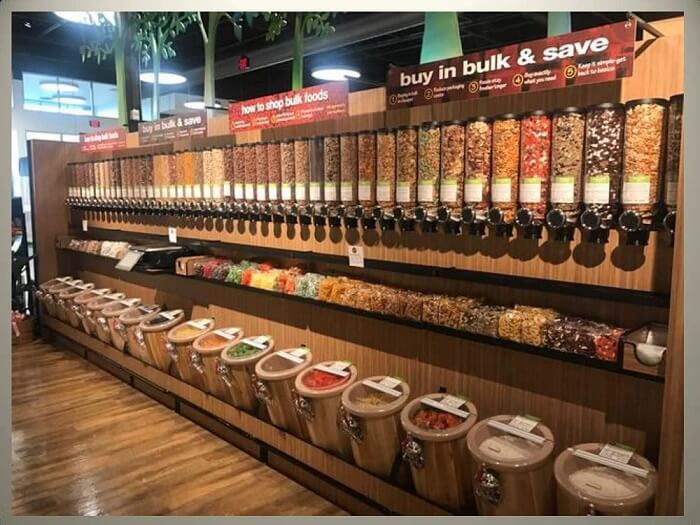Everyone’s a winner when it comes to buying in bulk: manufacturers, retailers, consumers, and the earth.
According to Melissa Breyer at TreeHugger, bulk purchasing may “require less overall transportation for delivery to consumers. There is much less packaging that needs to be produced and transported prior to being filled.” Not only does that benefit packaging manufacturers, but it’s also a win for the environment.
F&B managers and C-store owners who want to start stocking bulk products in their stores should check out these 12 recent trends and practices regarding bulk food.
 Heap of muesli isolated on white. Delicious granola cereal mix, with dried fruit and seeds.
Heap of muesli isolated on white. Delicious granola cereal mix, with dried fruit and seeds.
Gravity-Fed Dispensers Make Buying in Bulk Easy
Gravity-fed dispensers encourage customers to shop. Instead of offering one-size-for-all bulk products in heavy boxes or bags, dispensers allow consumers to purchase as much (or as little) as they want. Melissa Kvidahl at health resource NewHope Network chatted with Bulk is Green Council leader Clint Landis, who says there are other benefits too. Unlike traditional dispensers, gravity-fed versions can “eliminate sanitary concerns and keep foods fresher because it’s constantly rotated and air exposure is kept to a minimum.”Bulk Packaging Can Be Reused
Shoppers are already used to bringing their own bags from home when grocery shopping. And retailers selling bulk foods encourage them to do just that, whether these are reusable containers or bags. According to Resourceful PDX, consumers “save 500 bags a year” when they use their own reusable bags. In fact, with more grocery stores stocking bulk foods and making use self-serve dispensers, consumers are seeing less packaging when food shopping. One example of a store with these refill systems is Planet Organic, an environmentally-friendly store in London, reports Rebecca Byers at TrendHunter. It actively encourages shoppers to reuse bags, boxes and other bulk packaging. Resourceful PDX says stores like Winco, Whole Foods, Sheridan’s and Fred Meyer also share that preference.Popularity (and Revenue) Is Growing
C-store owners and F&B managers who haven’t yet installed bulk dispensers may wish to do so. It’s a trend that is seeing a rise in popularity and demand. According to Markets and Markets, “the processed herbs and spices segment is projected to grow at the highest rate during the [next five years]. Furthermore, increasing health-consciousness among consumers has led to an increased demand for health and wellness products, which is expected to fuel the demand for processed herbs and spices owing to the multiple health benefits associated with them.” The report expects that by 2021, the bulk food ingredients market will increase by more than four percent to $472.10 billion.Bulk Stores Can’t Evade Governmental Regulations
By December 1 of this year, many more food businesses will be required to reveal their caloric information in accordance with a mandate from the Food and Drug Administration, reports Nick Montano at Vending Times. The information must be posted near or on the machines, and the ruling applies to loose (not packaged) foods offered by “bulk vending operators who have 20 or more machines on location.”Bulk X-Ray Equipment Aids in Safety Inspections
Food and beverage packaging is big business. In fact, Bob Ries at Thermo Fisher Scientific reports projections that the world packaging industry is expected to increase by $5 billion from 2014, reaching $43.7 billion by 2018. However, he notes some manufacturers are having issues with safety inspections for bulk foods before they are packaged. Ries recommends bulk x-ray equipment that can “find contaminants such as metal, rock, plastic and glass and remove them prior to further processing.”Tank Farms Are a Good Solution for Bulk Liquid Storage
We’ve talked about bulk food, but what about bulk liquids? Not sure how to store these? Mullins Food Products decided to try tank farms with a 20,000-gallon capacity. As the company said, “that equates to 320,000 eight-ounce glasses of water.” While these farms are a huge undertaking, for a manufacturer looking for added capacity in which to reinvest, they’re a solution to consider.Multipacks Can Sit on Store Shelves Longer
For C-store owners, some food has to move same-day, such as fresh bakery and deli items. Other foods can sit on shelves for days or sometimes weeks. In that case, Lynn Petrak at Baking Business suggests multipacks. Petrak spoke to Pro Mach, Inc. vice president Vince Tamborello, about multipacks. “In our business, enhanced shelf life is mainly being offered by providing larger quantities and smaller portions in a single carton,” he said. “A customer can purchase a pound of product, but it is provided in a number of individual portions that are each wrapped separately.”All-Bulk Grocery Stores Do Exist
As a C-store owner, you’re probably thinking about getting a bulk aisle for your store, maybe two. Take some inspiration from all-bulk Tampa, Florida store Bulk Nation. Linda Florea at Florida newspaper Daily Commercial reports this store sells all its items in bulk, with rows upon rows of translucent bins. According to store marketing associate Ashley Lee, “stores do not carry a lot of restock product to keep inventory as fresh as possible.”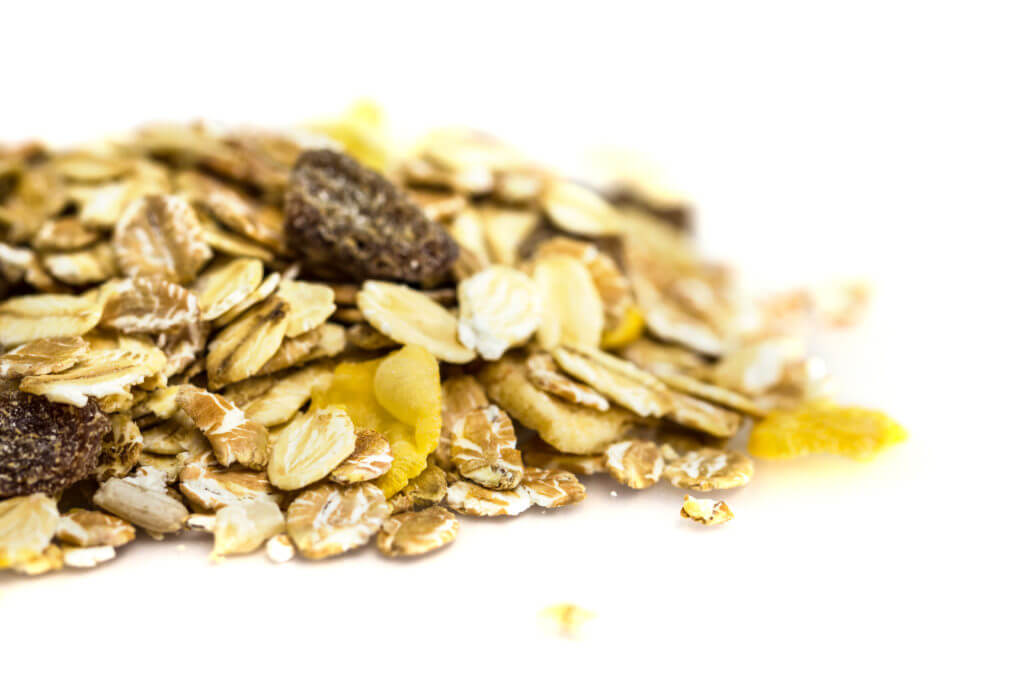 Heap of muesli isolated on white. Delicious granola cereal mix, with dried fruit and seeds.
Heap of muesli isolated on white. Delicious granola cereal mix, with dried fruit and seeds.

